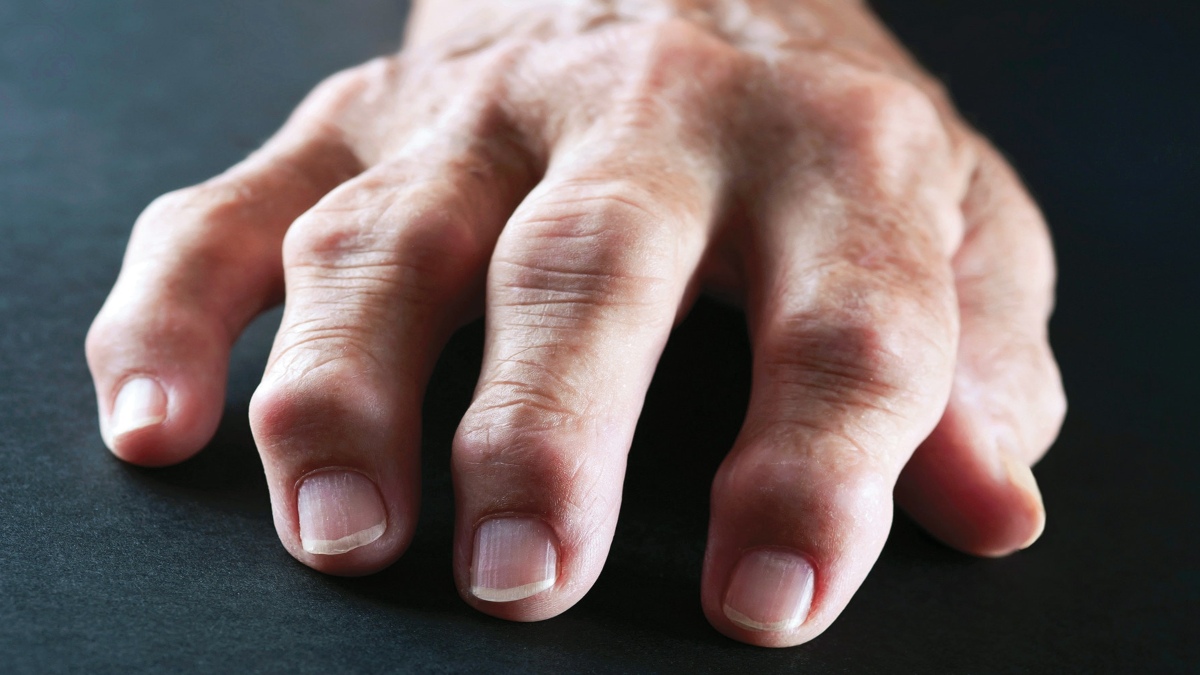


A chronic musculoskeletal or auto-immune condition, arthritis is a group of diseases that affects the joints, the spine and other parts of the musculoskeletal system. Arthritis is among the leading causes of disability worldwide that impact the quality of life as well as productivity of millions of people. While arthritis is associated primarily with ageing and auto-immune conditions, in recent years, lifestyle factors such as increased rate of obesity, lack of physical activity and unhealthy diets have contributed to its rise.
Arthritis is commonly divided into two forms: osteoarthritis, which is primarily age-related or injury-related wear and tear of the joints and rheumatoid arthritis, which is a systemic auto-immune form of the disease prevalent in different age groups. According to WHO estimates, as many as 9.6% of men and 18.0% of women aged over 60 years have symptomatic osteoarthritis. Similarly, the incidence of rheumatoid arthritis varies between 0.3% to 1% .
NEED FOR THE INTEGRATED TREATMENT APPROACH
Whichever the type, arthritis is a chronic disorder that majorly affects the mobility of patients and needs medical intervention to slow its progression and minimize damage to joint cartilage and bones. Arthritis is a debilitating condition that interferes with millions of people’s daily lives, preventing them from fulfilling their true potential.
Lifestyle changes, weight loss, the routine form of exercises, and consumption of a healthy diet and anti-inflammatory diet are critical interventions to reduce disease progression and improve quality of life.
Conventional treatment of arthritis involves a combination or drugs such as analgesics, NSAIDs (non-steroidal anti-inflammatory drugs), steroids, and immunosuppressants. In patients with a rapid progression of the disease or debilitating pain, these drugs help reduce the inflammation and reduce the disease’s progression. However, chemical-based drugs come with potentially serious side effects.
Alternative drugless therapies and naturopathic interventions can help patients improve their quality of life while reducing harmful drugs’ dosage in the long run. When naturopathic interventions are made early on in the disease cycle, they prove to be the most beneficial and may even help some patients avoid harmful drugs altogether.
Therefore, it is important to develop a treatment approach for arthritis that can enable patients to benefit from naturopathy and modern medicine. Naturopathic interventions also help patients lose weight, an important element in controlling joint degeneration.
ACUPUNCTURE FOR ARTHRITIS
Acupuncture is a traditional Chinese medicine practice that believes that life energy known as ‘qi’ (Chee) flows through the body along different meridians. The human body has 20 such meridians. When the flow of energy through these channels is blocked or imbalances human body experiences pain. There are more than 2000 acupuncture points that connect to meridians. Stimulating those points with needles corrects the flow of energy in the body and alleviates pain.
Modern medicine may not recognize the concepts of acupuncture, but acupuncture has been used as an alternative treatment method for the disease for a long time. Many patients who have failed to benefit from conventional medicine turn to acupuncture treatment and find relief.
Acupuncture, through the insertion of very fine needles on the pressure points, stimulates the brain to release natural pain killers called endorphins and stress hormone cortisol. The stimulation helps reduce pain and control inflammation. Research has shown that acupuncture helps in relieving stiffness and pain in arthritis patients along with promoting joint mobility and preventing cartilage breakdown.
A study published in the journal Evidence-Based Complementary Alternative Medicine in 2018 examined a series of cross-sectional studies to review the benefits of acupuncture for arthritis patients. The study found that acupuncture itself or when combined with other treatment modalities, offers benefits to patients with rheumatoid arthritis and can improve joint function and quality of life without any adverse effects. The study concluded that acupuncture seemed to have anti-inflammatory, antioxidative well immunomodulatory effects on patients, thereby ushering in the benefits .
PHYSIOTHERAPY FOR ARTHRITIS TREATMENT
Physiotherapy and physical exercise are crucial in keeping joint mobility and muscle strength intact. A physiotherapist will first examine the joints and the symptoms of the patient and then recommend a tailored exercise approach for each patient’s requirements depending upon the condition and severity of the disease.
Physiotherapy helps build muscle strength to support the joints, enabling the use of affected joints along with improving overall mobility. As arthritis progressively impacts joint health, regular physiotherapy helps patients maintain fitness and preserve the ability to perform their quality of daily activities.
In certain cases, physiotherapists may also use few electrotherapy modalities to relieve the pain like hydrotherapy, manual therapy, thermotherapy & cryotherapyin arthritis patients. Thus it helps to increases mobility and relieves the pain while also helping patients with ortho supports such as braces or splints for affected joints to maintain and avoid further worsening of the alignment of the joints.
CONCLUSION
Physiotherapy and acupuncture are slowly gaining acceptance as supplementary treatment methods for arthritis. With an ageing population leading to a higher burden of arthritis, there is bound to the greater need for complementary treatment approaches that help minimize adverse drug effects. When used in tandem with modern medicine, naturopathic interventions such as acupuncture can significantly improve patients’ quality of life and clinical outcomes.
The author is Assistant Chief Medical Officer, Jindal Naturecure Institute.